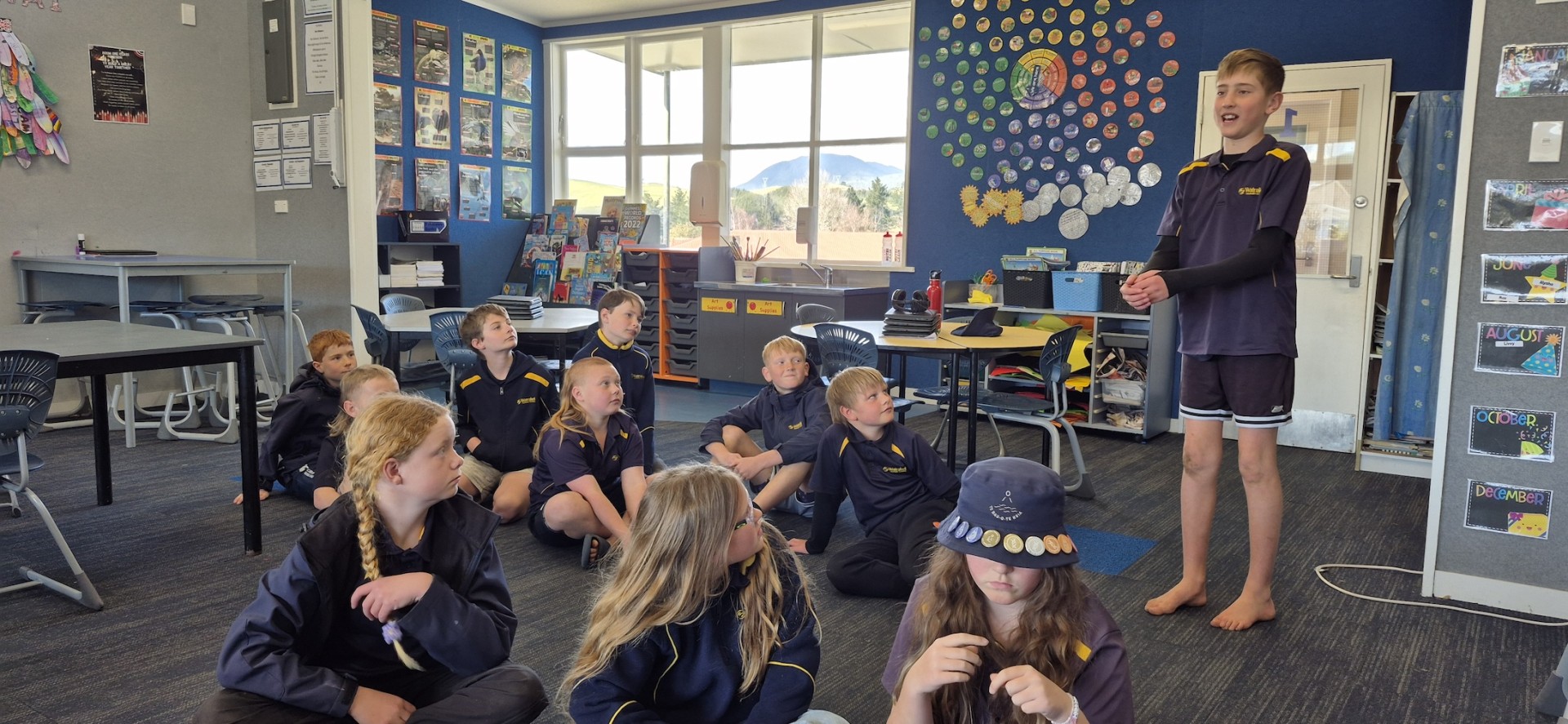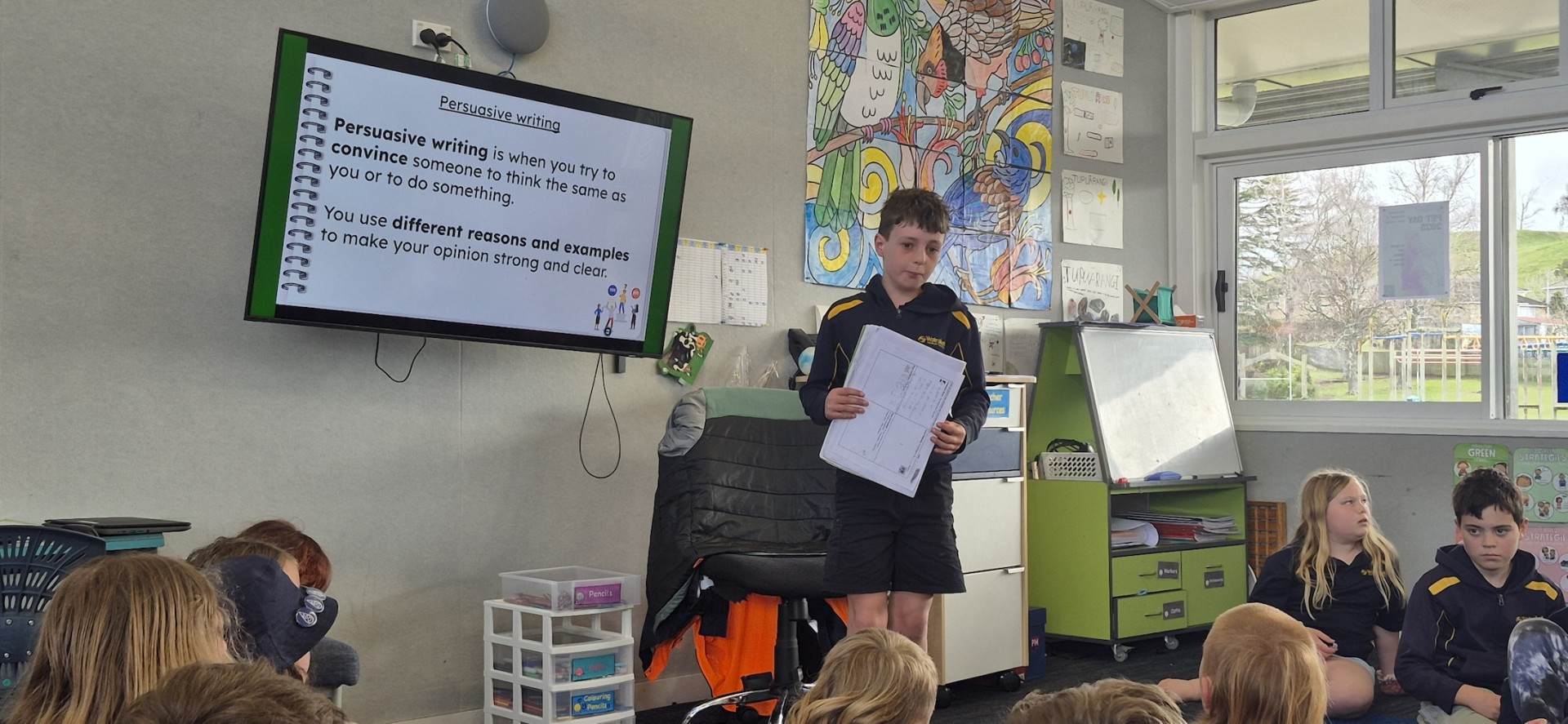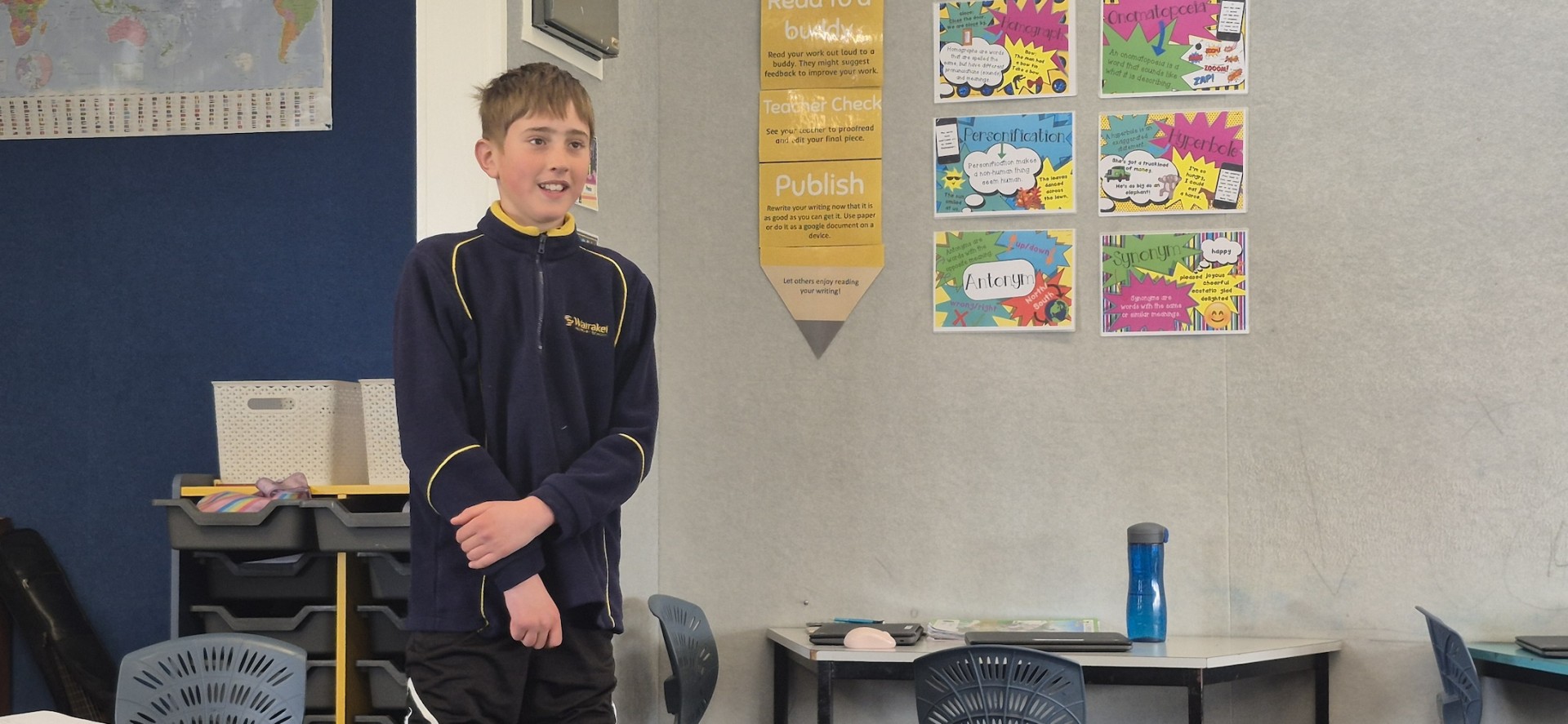Opinion corners set the stage for these discussions. The four corners of the classroom represented strongly agree, agree, disagree, or strongly disagree. Students chose which corner of the classroom of the mat to sit at, based on their feelings and opinions. After listening to each other’s points of view, many changed their position, showing just how powerful a well-explained argument can be.
Building Persuasive Writing Skills
A key part of persuasive writing is using emotive words and phrases that encourage others to adopt a new point of view. To help structure arguments, students practised using sentence starters like “I believe…”, “In my opinion…”, and “This is important because…”.
Persuasion maps supported planning by helping to organise opinions into three clear reasons, backed with facts or examples, before finishing with a strong conclusion. Topics included:
-
Should PE be held every day?
-
Should children have unlimited screen time?
-
Are video games good for children?
-
Should seating in class be a completely free choice?
Building Confidence Through Oral Language
Sharing writing aloud gave everyone the chance to be persuasive. Confidence grew with each presentation, and discussions became animated, particularly around the role of video games.
strongly disagree that video games are good for children. I think that some of them are educational, but most of them are just rubbish. A lot of kids play games which have violence, and aren’t good for learning.
I agree with what Heath said, because games that involve shooting are going to be bad for kids.
Individuals brought forward their own debate topics. William sparked an engaging discussion on de-extinction with his question: “Should extinct animals be brought back to life?”
This led to thoughtful ideas about animals such as dire wolves and even efforts to bring back the moa.
Another hot topic was the idea of stopping Ball Free Monday.
Kian argued: “I am strongly against Ball Free Monday because it isn’t fair that kids who want to play on the blue bars or playground still get to do what they want. Why do we have to miss out?”
Rugby also had its turn in the spotlight. Luke put forward strong arguments for allowing tackle rugby at school: “Rugby is our national sport, and we should be allowed to play it. Teachers are worried about injuries, but we already know how to tackle and fall safely because we play outside of school.”
This opened the door for Matua Jonas to share an opposing viewpoint, sparking constructive discussion where persuasive language was used to back up positions.
Speeches
Debating these topics gave everyone the chance to practise presenting in front of peers in a meaningful way. The next step is to plan, write, and deliver full speeches to the class, with the chance of qualifying for the speech finals. Confidence and conviction are growing with every opportunity to speak and share.






Comments
No one has commented on this post yet.